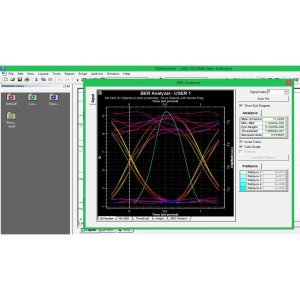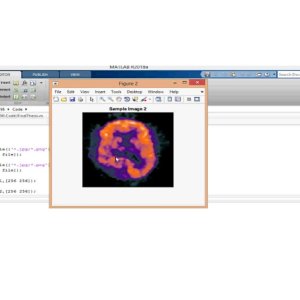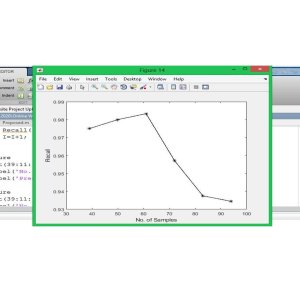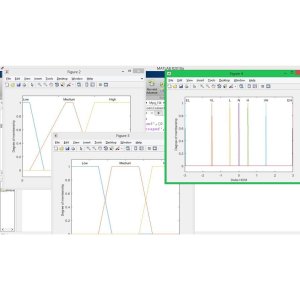Advanced Modulation Scheme for Optical Communication in Varying Weather Conditions
Problem Definition
PROBLEM DESCRIPTION:
One of the major challenges faced in optical communication systems, especially in Free Space Optical (FSO) communication, is the impact of atmospheric conditions on the quality of the transmitted signal. Turbulence-induced fading of the channel can significantly degrade the efficiency of the obtained signal and result in lower output links. Traditional modulation schemes may not be efficient enough to compensate for these adverse weather conditions.
Therefore, there is a need for an adaptive modulation scheme for optical communication that can dynamically adjust based on multiple weather conditions to ensure reliable and high-quality transmission. By analyzing the impact of different weather conditions on the performance of the system, we can develop a modulation scheme that can effectively mitigate the effects of atmospheric turbulence and improve the overall reliability of FSO communication systems.
By implementing an advanced modulation scheme in conjunction with a thorough analysis of the impact of various weather conditions, we can enhance the performance of optical communication systems and pave the way for more reliable and cost-effective last mile solutions.
Proposed Work
The proposed work aims to develop an adaptive modulation scheme for optical communication in Free Space Optical (FSO) systems, addressing the issue of turbulence-induced fading in the channel. FSO communication is a cost-effective and secure method that utilizes a wide bandwidth on an unregulated spectrum, making it an attractive solution for bridging the last mile gap. Traditional modulation schemes like ASK have been widely used, but in this research, an advanced modulation scheme will be implemented to improve signal efficiency. The impact of atmospheric turbulence on the system will be analyzed under different weather conditions using simulations with OptiSystem software. The performance of the system will be evaluated using metrics like bit error rate to validate the effectiveness of the proposed modulation scheme.
This research falls under the category of Latest Projects and is a part of the subcategory of the same name.
Application Area for Industry
The proposed adaptive modulation scheme for optical communication in Free Space Optical (FSO) systems can be extremely beneficial for a variety of industrial sectors, such as telecommunications, defense, and aerospace. These industries often rely on optical communication systems for secure and high-speed data transmission, making the impact of atmospheric conditions on signal quality a significant challenge. By implementing an advanced modulation scheme that can dynamically adjust based on weather conditions, the efficiency and reliability of communication systems in these sectors can be greatly improved. For telecommunications companies, this solution can enhance the performance of last mile connectivity, ensuring faster and more stable internet connections for end-users. In the defense and aerospace industries, where secure and real-time communication is critical, the proposed modulation scheme can help overcome disruptions caused by atmospheric turbulence, enabling more reliable data transfer in challenging environments.
Overall, the implementation of this solution can lead to increased efficiency, reliability, and cost-effectiveness for optical communication systems across various industrial domains.
Application Area for Academics
The proposed project on developing an adaptive modulation scheme for optical communication in Free Space Optical (FSO) systems addresses a crucial issue faced by researchers and scholars in the field of optical communication systems. MTech and PhD students can leverage this project for conducting innovative research in the domain of FSO communication and atmospheric turbulence impact on signal quality. By implementing an advanced modulation scheme and analyzing the effects of various weather conditions on system performance, researchers can explore new methodologies for improving signal reliability and efficiency. This project provides a platform for students to delve into simulations, data analysis, and experimental validation to enhance their research outcomes and contribute to the advancement of optical communication technologies. The code and literature from this project can serve as valuable resources for MTech students and PhD scholars working on their dissertation, thesis, or research papers in the field of optical communication systems.
Future research scope may include the integration of machine learning algorithms to further optimize the adaptive modulation scheme and enhance system performance in challenging atmospheric conditions.
Keywords
adaptive modulation scheme, optical communication, Free Space Optical (FSO), atmospheric conditions, turbulence-induced fading, channel efficiency, modulation schemes, weather conditions impact, reliable transmission, high-quality signal, performance analysis, system reliability, optical communication systems, last mile solutions, cost-effective solutions, advanced modulation scheme, ASK modulation, OptiSystem software, simulation analysis, bit error rate, signal efficiency, channel fading mitigation, weather conditions analysis, Latest Projects, research project, communication reliability, signal quality, dynamic modulation adjustments.
| Shipping Cost |
|
No reviews found!


























































No comments found for this product. Be the first to comment!